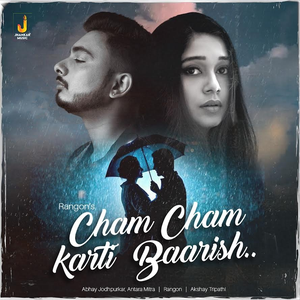Mumbai: Playback singer Abhay Jodhpurkar, known for his song ‘Mere Naam Tu’ from the Shah Rukh Khan-starrer ‘Zero’, said that his recently released track ‘Cham Cham Karti Baarish’ transports the listeners to the nostalgia of the 1990s.
The track is titled ‘Rimjhim Rimjhim Brishtira’ in Bengali, and has been composed by Rangon.
Abhay also shared that the song blends traditional and contemporary elements. The song captures the essence of the monsoon with its lush instrumentation, featuring a delightful blend of guitars, mandolin, various strokes, drums, dholak, and flute.
Abhay told IANS: “‘Cham Cham Karti Baarish’ has a rich and evocative texture that beautifully captures the essence of the monsoon. The melody transports you to a world of nostalgia, reminiscent of the magical era of the 90s. It’s melodically satisfying and envelops you in a sense of warmth and longing. The song seamlessly blends traditional and contemporary elements, creating a soundscape that feels both timeless and fresh. The intricate arrangement and heartfelt lyrics add depth to the song, making it a perfect companion for rainy days.”
Talking about his collaboration with Rangon, the singer said: “Independent music offers a wonderful platform for artistic freedom and expression, which I realised in my collaboration with Rangon. The melody of ‘Cham Cham Karti Baarish’ transports you to the magical era of the 90s—it’s nostalgic, and executed brilliantly by Rangon. I had the pleasure of singing this song with Antara, whom I have admired since her Indian Idol days.”
For Abhay, recording the song with Antara in both Hindi and ‘Rimjhim Rimjhim Brishtira’ in Bangla was a delightful experience.
“Each version has its unique charm, and we had a fantastic time recording it. I hope listeners can feel the magic we aimed to create. This song perfectly sets the mood for the monsoon season, and I am thrilled to share it with everyone,” he added.
Talking about the elements used in the track, Rangon told IANS: “To capture a classic 90’s vibe, we incorporated instruments like the mandolin and ukulele for the intro and music parts. We used a lot of flute to enhance the romantic mood of the song, and of course, the signature dholak to evoke that quintessential 90s Indian feel. To blend modernity into the track, we included synth-based sounds, electric guitars, and some electronic beats.”
–IANS


Comments are closed.